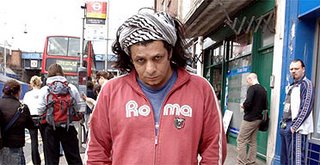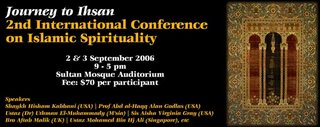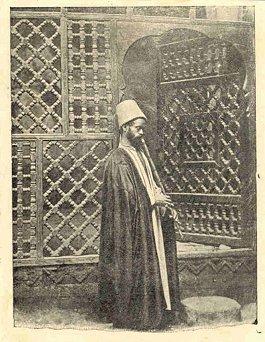Freedom of Speech?

a british muslim rapper intends to release an album that castigates the west, honors Osama by likening him to Che Guevara. it will interesting to wait and see what will be the response from the West. will they allow it as freedom of speech since if they dont, they will compromising on their zealous principle.
i really hope more muslim artists will come forward with similar efforts as Aki Nawaz only to prove a point to the west- In this world every person be it a Muslim or non-Muslim, has a personal boundary of acceptance and tolerance beyond which his/her sensitivities will be damaged. therefore one must express something about someone else within the boundary of the other person. should the west insist selfishly that they are entitled to unilaterally express themselves regardless of whether it will injure the sensitivities of the other, then it must be equally be prepared to take what it dishes out. one man's meat is another man's poison. there can freedom of speech. but why does one need freedom to injure another?
G-had and suicide bombers: the rapper who likens Bin Laden to Che Guevara ·
Record label chiefs' threat to quit over violent lyrics·
This is about freedom of expression, says musician Mark Brown, arts correspondent and Luc TorresWednesday June 28, 2006The Guardian Aki Nawaz says he is is prepared to face the consequences of his album’s release. 'I'll take all the blame,' he says. 'If they're going to lock anyone up they'll lock me up'. Photograph: Martin Godwin
Two record company executives are threatening to resign from a label over an album by a radical Muslim musician which has tracks about the immorality of the west, suicide bombers and Osama bin Laden.
Aki Nawaz is determined to release what is, by anyone's standards, a phenomenally angry album. He says he fully expects a knock on the door from MI5. As the main component of the band Fun-da-Mental, Nawaz has been producing politically challenging music since 1991 but accepts he is pushing those boundaries further.
The album, All is War (The Benefits of G-had), contains one track which uses the words of Bin Laden issuing "a statement of reason and explanation of impending conflict" and equates him with Che Guevara. Another forensically recreates a suicide bomber at work. The opening song is a rejection of what Nawaz sees as the hypocrisy and immorality of the west. One supposedly dream-like track predicts the demise of America at the hands of Islam.
Nawaz, a former drummer in the Southern Death Cult, said yesterday: "I have a right to push the boundaries as much as anyone else has, whether it's Ken Loach or Harold Pinter or George Galloway or Neil Young or the Sex Pistols."
He recognises some people will say his album should not be released, that it might incite people. "I've already told all the lyricists don't worry if we get into trouble, I'll take all the blame. If they're going to lock anyone up they'll lock me up. I'm not scared, I've got a lot of anger and frustration at where we have arrived at. I'll take the heat. And I've told my kids, I've told my wife that if anything goes wrong with me I want you outside Paddington Green and I want you staying there day and night."
The impending release of the album has already caused consternation. Nawaz says two silent directors of his label, Nation Records - Martin Mills and Andrew Heath of Beggars Banquet Records - have threatened to resign if he releases the album, which he intends to. Neither Mr Mills nor Mr Heath were prepared to comment yesterday.
Nawaz said he had respect for both men but added: "I'm kind of disappointed because it makes me think if Never Mind the Bollocks had landed on their tables they would have dismissed it. "They're in fear for themselves and they're in fear for me which is a telling tale of where we are at in the present scheme of things when it comes to freedom of expression."
Nawaz produced the album in London, Pakistan and South Africa and it also contains songs which address deaths in Afghanistan and Srebrenica.
He said rather than ask about the effect his album might have on impressionable people, the question should be asked of the government. "You've already got people at the top who are inspiring them to do wrong. It's like a mafia who say for us to do anything is legitimate but any resistance towards us is illegitimate. So you have legalised terrorism and illegal terrorism."
Nawaz, who grew up in Bradford, believes he is being honest. This "honesty" manifests itself in tracks such as the rap song I Reject, an angry polemical blast with lines such as "Reject your blood I reject your creed/Reject your queen and her stolen crown/Reject your media falsified news/Reject your patronising liberal views." It also takes a swipe at moderate Muslim voices who accept invitations to Downing Street.
Nawaz said: "A lot of young people will listen to I Reject and say that's where I'm at. Anyone worried by what I'm saying should get involved in the debate. You are allowed to dissent. It's a right. It's not exclusive to indigenous people."
Nawaz describes the songs Che Bin Parts 1 and 2 as a discussion on resistance and terrorism. He uses the words of Bin Laden and Che Guevara to suggest that they have more in common than differences. Nawaz said he challenged anyone to disagree with the statement by Bin Laden that he uses.
Cookbook DIY has lyrics about how a suicide bomber makes his bomb. It also has a verse about how a White House scientist makes his bomb - equating the two.
Nawaz denies that he is condoning suicide bombers. "Everything to me is tragic. I don't understand what the guys are doing. But I can feel what they're doing."
It is not difficult to predict the reaction from some sectors. Nawaz says he is ready for it. "I've got a Post-It note on my front door saying don't knock the door in, ring me, here's my number."

